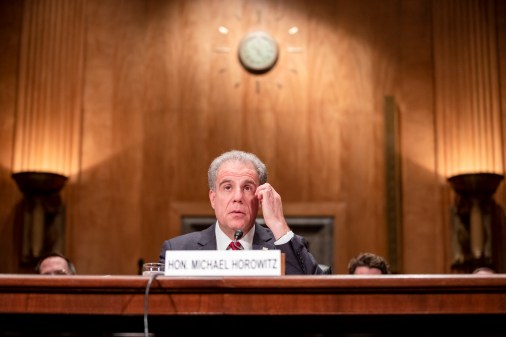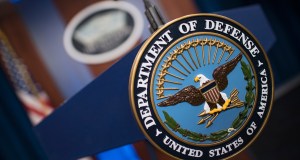In the modern era of budget cuts and big data, the federal government’s financial and information officers at the Defense Department and Justice Department have been pushed together closer.
“I don’t know if it’s changed the relationship, but we certainly talk a lot more,” said Teri Takai, DOD’s chief information officer. “We’ve gone through more iterations of the budget than we would in normal years.”
Because hitting a budget target often means targeting administrative costs, which usually includes information technology, the two sides are now together in this shrinking budget boat. Takai — speaking with financial officers and information officers from DOD and DOJ at the 2013 Federal CIO-CFO Summit on June 6 — explained how the two departments were trying to meet budget requirements, while still modernizing data collection and analysis. The solution? Audits, accountants and business school graduates.
“I want less engineers and more MBAs and accountants involved in these discussions,” said Luke McCormack, DOJ’s CIO, while his DOJ financial counterpart, Director of Finance Melinda Morgan, pumped her fist in support to his right. “I’ve found when you have good data in front of good business decision-makers, nine times out of 10, you’re going to make good business decisions,” McCormack added.
“I love to hear people say they need more accountants in the room,” said Mark Easton, deputy CFO at DOD, before McCormack cut in: “No offense to engineers, of course.”
But part of the problem is simply getting that good data in front of accountants and MBAs. McCormack thinks accountants and MBAs can help with that too. They have the skill set, he said, to normalize data — bringing data sets measured on different scales together to one dataset measured on a common scale. That allows agencies to conduct more useful predictive analysis.
And predictive analysis will help DOJ and DOD make responsible decisions on future cybersecurity spends. Everyone agrees cybersecurity investment must be higher, “but the question is, ‘What do I get for my incremental million that I spend?’” Takai said. “The ability to get regularity around what we’re going to get back for [our investment] is very difficult to quantify and difficult to assess.”
One way to assess return on investment is constant audit readiness. The ever-unpopular audit was showered with praise from all four panelists. DOD has been acting under the Financial Improvement and Audit Readiness directive since 2005. Former Secretary of Defense Leon Panetta sped up the program in 2011, calling for complete audit readiness by the end of 2014.
“It’s probably sacrilegious for us to say in the building that the audit is a good thing,” Takai said. Easton chimed in, “People are not always smiling in the hallways when I’m talking about audits.”
But Takai, Easton and both DOJ officers extolled the virtues of audits. They help inform future decisions, Takai said.
“It creates a lot of workload,” she said, “but it does mean on an ongoing basis that we’ll have regularity of information.”




